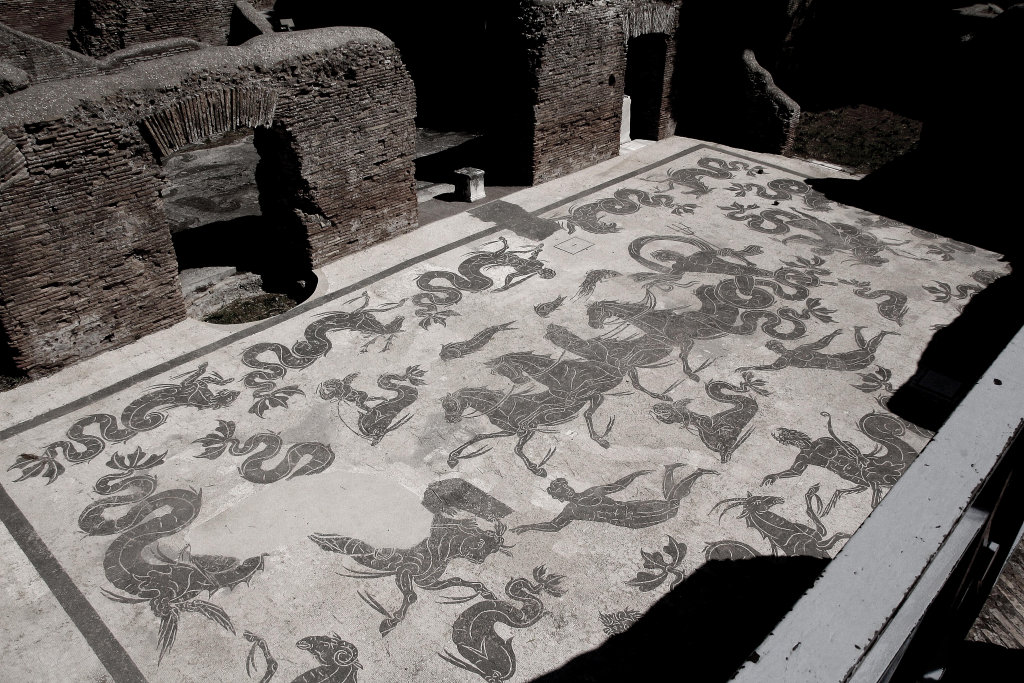
5.5
[1] Eā nocte ad suam Psȳchēn sīc īnfit marītus (namque praeter oculōs et manibus et auribus eius nihil nōn sentiēbātur): [2] “Psȳchē dulcissima et cāra uxor, exitiābile tibi perīculum minātur Fortūna saevior, quod observandum pressiōre cautēlā cēnseō. [3] Sorōrēs iam tuae mortis opīnīone turbatae tuumque vestīgium requīrentēs scopulum istum prōtinus aderunt, quārum sī quās forte lāmentātiōnēs accēperīs, neque respondeās immō nec prōspiciās omnīnō; cēterum mihī quidem gravissimum dolōrem, tibi vērō summum creābis exitium.” [4] Annuit et ex arbitriō marītī sē factūram spopondit. Sed eō simul cum nocte dīlāpsō diem tōtum lacrimīs ac plangōribus misella cōnsūmit, [5] sē nunc maximē prōrsus perīsse iterāns, quae beātī carceris custōdiā sēpta et hūmānae conversātiōnis colloquiō viduāta nec sorōribus quidem suīs dē sē maerentibus opem salūtārem ferre ac nē vidēre eās quidem omnīnō posset. [6] Nec lavācrō nec cibō nec ūllā dēnique refectiōne recreāta flēns ūbertim dēcessit ad somnum.
Cupid tells Psyche that she must beware listening to her sisters. Psyche spends the entirety of the next day in tears.
Psȳchēn: Greek accusative. Apuleius uses mainly Greek forms for Psyche’s name (Psȳchēs, Psȳchēn), occasionally alternating with Latin genitives (Psȳchae, e.g. at 5.6.9).
eius nihil nōn sentiēbātur: “she felt every part of him” (lit. “nothing of him was not perceived”).
quod observandum (esse): indirect statement depending on cēnseō, passive periphrastic (A&G 500.2).
sorōrēs…turbatae: “Your sisters, troubled by the belief of your death.”
quārum: antecedent is sorōrēs; possessive genitive depending on lāmentātiōnēs.
ex arbitriō: See note on 5.5.2
eō…dīlāpsō: “But when he had disappeared with the night.”
maximē prōrsus: Note the redundancy.
quae: nom. f. s.; Psȳchē is its antecedent.
īnfit (irregular verb): he/she/it begins to speak
exitiabilis, -e: destructive
pressus, -a, -um: close, exact, accurate, strict (L&S s.v. premo, pressus, -a, -um II B)
cautēla, -ae f.: caution
censeō, -ēre, -suī, census: to be of the opinion (L&S s.v. censeō II).
spondeō, -ēre, spopondī, spōnsus: to vow, promise
plangor, -ōris m.: a striking, a beating
misellus, -a, -um: wretched, unfortunate
iterō, -āre: to repeat
s(a)epio, īre, -psī, -ptum: to fence in, enclose
viduō, -āre: to bereave, deprive of (+ abl. of separation)
salūtāris, -e: health-giving, helpful; since this is an allegory about the Soul, the sense of “saving” may also be subtextually present.
refectio, -ōnis f.: a restoring, refreshment
ūbertim (adv.): abundantly, copiously

Remains of a Roman lavacrum (Baths of Neptune, Ostia Antica, Italy)